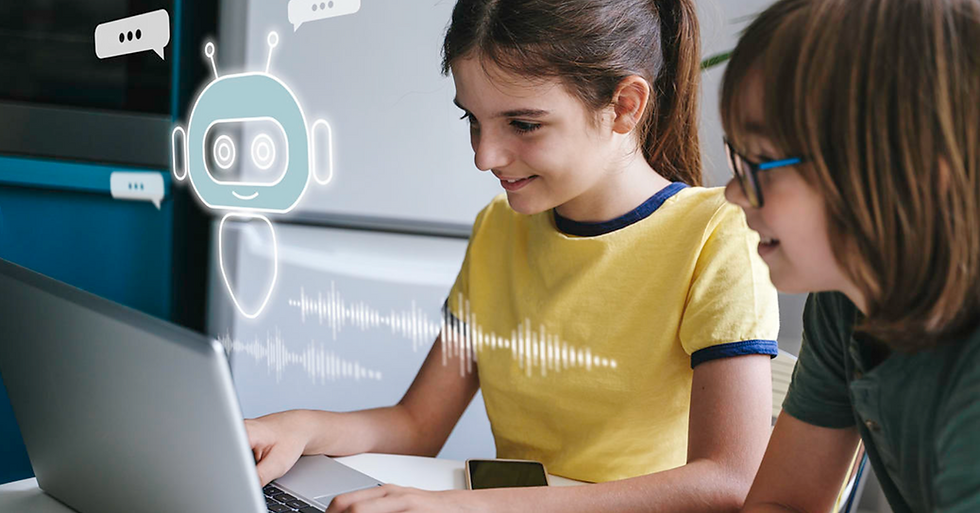Generative AI’s Impact on Student Motivation: ChatGPT and the Death of Curiosity
- Nicole Luk
- Jul 19, 2025
- 3 min read
In 2024, a disconcerting study emerged: students who utilised ChatGPT or other forms of generative AI to write their assignments reported a significant decline in intrinsic motivation to learn the related topics afterwards. Will critical thinking, the fundamental of human learning, wither away in the age of generative AI? If so, what may be the reason? This article will briefly discuss how AI can gradually diminish and replace human critical thinking, as well as how self-determination theory could potentially explain why.

Critical thinking lies at the heart of the learning process. It involves analysing information, evaluating arguments, and forming one's own opinions. However, AI tools like ChatGPT are gradually replacing these cognitive processes with automation. When students rely on ChatGPT to write essays, they are essentially outsourcing their thinking. Instead of personally conducting research, pondering over potential explanations, and constructing a logical argument, they receive a polished response at the click of a button.
Self-determination theory posits that humans have three basic psychological needs: autonomy, competence, and relatedness. Autonomy refers to the sense of having control over one's actions and making choices that align with one's values. Competence is the feeling of being capable and effective in one's actions. Relatedness is the ability to experience a sense of belonging and attachment to other people.
When students use AI tools to complete their academic tasks, their sense of autonomy is undermined. They are not making decisions about how to approach a problem, what information to include, or how to structure their thoughts. Instead, the AI is making these decisions for them. For example, if a student uses an AI-powered writing tool to complete a creative writing assignment, they are not exercising their creative autonomy. They are relying on AI to generate ideas and structure the story.
In terms of competence, the over-reliance on AI can give students a false sense of accomplishment. They may receive good grades on assignments completed with AI, but they have not developed the skills necessary to complete the task independently. This can lead to a long-term sense of inadequacy when they are faced with situations where they cannot rely on AI. For instance, in an exam or a real-world scenario where AI is not available, they may struggle because they have not truly learned the material.
Finally, relatedness is compromised as self-determination theory posits that individuals have an innate need to feel connected to others, which fosters a sense of belonging and community within the learning environment. When students rely heavily on AI tools for information retrieval and task completion, students will, instead of engaging in collaborative discussions with peers or seeking guidance from educators, may turn to AI as a solitary source of answers. This isolation undermines the development of relatedness, as interactions with others are limited, and the opportunity to share ideas, learn from diverse perspectives, and build relationships is diminished. Without a strong sense of relatedness, students are less likely to be motivated and engaged in their learning, further exacerbating the decline in curiosity and active participation.
Thus, given the growing influence of AI on students' learning experiences, there is an urgent need for pedagogical shifts. Educators must find ways to incorporate AI in a way that complements, rather than replaces, critical thinking and active learning.
Learn more about this topic from the article HERE!
Works Cited
Abrams, Z. (2024). What psychologists need to know about the evolution of generative AI. [online] https://www.apa.org. Available at: https://www.apa.org/monitor/2024/01/trends-generative-ai-evolution-psychology?trk=public_post_comment-text [Accessed 25 Jun. 2025].
Cherry, K. (2024). Self-Determination Theory: Basic Psychological Needs in Motivation, Development, and Wellness. [online] doi:https://doi.org/10.1521/978.14625/28806.
.png)





Comments